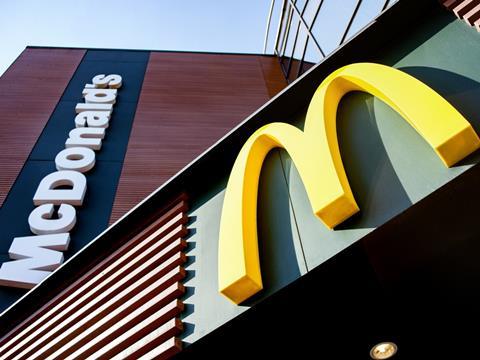
McDonald’s Corporation has pledged to evaluate and report on the opportunities and risks posed by a transition into reusable packaging, including its impact on single-use solutions and the environment – and non-profit foundation As You Sow has withdrawn its shareholder proposal with the company in response.
While McDonald’s currently complies with a new French law that requires all on-site dining to switch to reusable packaging, no public plans have been made to roll out the same solutions in the United States. As You Sow filed a resolution to encourage McDonald’s to evaluate the environmental, financial, and reputational benefits of expanding its reusable packaging, especially in light of new American laws that are set to tax corporations for single-use packaging.
In subsequent dialogue, McDonald’s apparently emphasised its commitment to exploring reusable packaging in line with its wider aims of implementing a sustainable approach to its packaging, toys, and waste reduction efforts, stating its plans to publish a comprehensive study in early 2024.
Further engagement between the organisations saw McDonald’s agree to include an assessment of the industrial and environmental opportunities and risks posed by full-scale reuse in the context of the System Change Scenario proposed by the Breaking the Plastic Wave report. In this work, it is said that eight complementary interventions must be implemented to achieve an 80% reduction in plastic pollution by 2024; this is expected to provide potential actions and goal frameworks for the fast food chain to utilise in its rollout of reusables.
“We commend McDonald’s for committing to the exploration of a more circular future for quick-service restaurant dining,” said Kelly McBee, circular economy senior coordinator at As You Sow. “We anticipate the report will demonstrate reusable packaging to be a critical component of sustainable operations and hope this action signals other quick-service restaurants to follow McDonald’s lead.”
As You Sow has also worked alongside other organisations in an effort to encourage a widespread adoption of reusable packaging solutions for food and beverage chains. The Coca-Cola Company and PepsiCo have announced that, by 2030, they will serve their products in a respective 25% volume of reusable or refillable packaging and 20% of PepsiCo’s total portfolio in reusable packaging. Meanwhile, Starbucks aims to implement a complete switch to personal reusable mugs in all its dine-in and drive-thru locations by the end of 2023.
On the other hand, Emma Samson, marketing communications manager at Searious Business, expressed her reservations in a statement made to Packaging Europe: “Two weeks ago, before this news was announced, McDonald’s and consulting firm Kearney released a study entitled ‘No Silver Bullet’, which aims to assess the impact of three circularity solutions in the Informal Eating Out (IEO) sector. The EU’s proposed Packaging and Packaging Waste Regulation (PPWR) solutions involve reducing or replacing (composting), reusing and recycling across both dine-in and takeaway outlets.
“The study, commissioned by McDonald’s and launched at an event organised by the European Paper Packaging Alliance, reportedly implies that the PPWR’s focus on reuse could adversely affect the economy, food safety and the environment, increasing plastic packaging waste overall.
“Jean-Pierre Schweitzer at the European Environmental Bureau stated that the publication appears more as a position paper than a robust study and questions the lack of transparency on the assumptions behind the conclusions. All impact analyses contain necessary assumptions; this report must also predict the future. They have extrapolated 2021 figures and assumed improved recycling rates and industrial composting infrastructure. It also applies a positive outlook on reuse, predicting relatively high return rates of 70% for takeaway and 95% for dine-in.
“However, they only anticipate packaging being used 3 times for takeaway and 20 times for dine-in situations, presuming damage, contamination or loss. All reuse models require multiple revolutions to counteract the environmental impact of manufacturing longer-life products. Materials and design must be well-chosen, and clear instructions be given on proper use.”
A cross-industry coalition made up of organisation in the European hospitality, beverage, and beverage packaging industries also fears that, amongst other issues, the reuse and refill schemes set out in the PPWR revisions could cause an influx of non-compliant reusable products on the European market – resulting in its call for an improved impact assessment.
Even so, Burger King’s German branch has rolled out reusable and recyclable polypropylene cups for its beverage, milkshake, and ice cream products through the RECUP deposit return system. It is anticipated that this solution will cut down on single-use cup waste and conserve valuable resources.
Rimi and Ringo are also trialling reusable packaging for self-service food counters in the hopes of increasing consumers’ access to and use of reusable solutions.














No comments yet